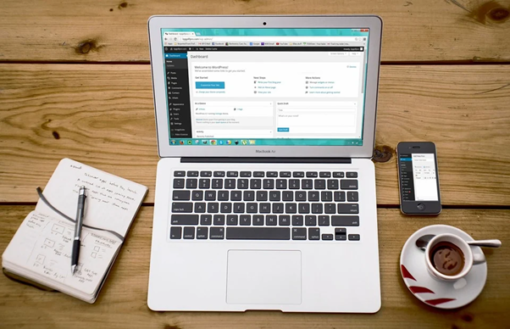
WordPress is the most popular and the simplest way to build your website. This is a powerful and flexible Content Management System (CMS) that will allow even those who are not so tech-savvy to create an impressive online platform where they can showcase their products and services.
Although it comes with a lot of perks, from time to time you can face certain difficulties. One of the most common ones is the slow page loading aka the speed. This can negatively affect your customers. They can become impatient, give up on you, and move their business elsewhere. Even more than that, the loading speed is also recognized as one of the Google SEO factors so it can hurt your search engine ranking and online visibility.
Given the importance of having a fast-loading WordPress website, let’s see what you can do to make it work better and increase its speed.
Reputable Hosting Provider
Before you start thinking about anything else, you have to determine whether you’re receiving services from a good hosting provider. As explained by professionals at Alivebetter.com, this is the first and the most important aspect of website speed optimization. So, it’s absolutely necessary to have the best possible hosting company in your corner.
Numerous companies are offering these types of services and all kinds of plans. Something like shared hosting is extremely affordable but it comes with one serious disadvantage – not providing you with the necessary speed. Although solutions like a dedicated plan might be too costly for you, VPS might be the answer you are looking for. Virtual Private Server (VPS) will actually mimic a dedicated server within a shared hosting environment.
Sometimes Simple is Better
When you’re selecting the theme for your website, you need to have in mind that they can also affect website optimization. Don’t go for flashy and over the top options featuring complex layouts, dynamic animations, and other things you don’t really need. A well-coded theme containing the right proportion of images and content will not overload your site and make it slow. So, keep it simple and effective as possible. By doing so, you will be able to provide your customer with better user experience.
Use as Few Plugins as Possible
Plugins add that extra spark to the world of WordPress. However, although they make sites more functional, they also make them heavier. And the more weight you add, the slower your loading time will be. The recommendation is to use as few plugins as possible, delete the ones you have but don’t use, and always go for those created by the reputable developers.

Reduce Image Size
You might think that the bigger images in high resolution might keep the visitors interested but that’s not always the case. Although it might make your website visually better, it will also make it harder to load. We all know how impatient people have become and that something like this can drive them away from your platform. So, converting images to lower resolution and/or size will do the trick in making your site faster. And if you don’t feel like doing it yourself, some plugins will do this job for you.
Database Optimization
Over time, as you keep using WordPress, its database will get filled with a lot of information that you probably don’t need anymore. Information like images, user data, setting, and comments are all stored and can affect the site’s speed. So, you should remove all these unnecessary data and clean up the storage 3-4 times a year. This way you will improve the performance and keep things running smoothly.
Optimize The Homepage
The homepage is the gateway to any site and it’s important to keep it well-organized. If you have too many things happening, that can not only be confusing for a visitor but it can also take more time to load. One of the best ways to optimize the homepage is to reduce its content.
Although some themes will display entire articles in this part of the site, the better solution would be to use excerpts on the front page. Also, limiting the number of blog posts per page will help with optimization. Again, keep it clean, keep it simple. Remove social media widgets you don’t need and get rid of inactive plugins.
These are just some of the tips that will help you with your building and/or managing a WordPress website. The key is simplicity and removing all the things you don’t need. This will make your platform lighter and your loading times faster.